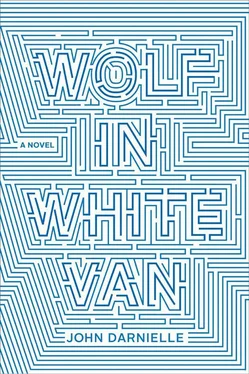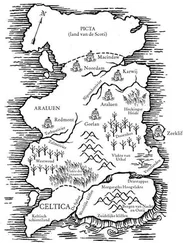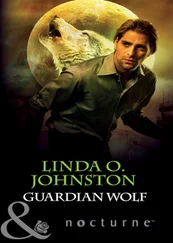“No, no, Sean,” said my dad. “We asked her parents to ask her not to come today. We want … we want to know why she keeps visiting you.”
“Friends a long time,” I said very carefully, very slowly, holding my spasming jaw as still as I could. I wanted to get the r in friend right, but I couldn’t, so I said fend. Who knows what long even came out like.
“Yes, we know,” he said. There was no mistaking his tone. “But we don’t think she’s been entirely honest with us.”
I had been waiting for this. It was almost a relief. They’d been working variants of this line from the moment I’d first regained consciousness: “Who gave you this idea?” Things like that. I had very concrete fantasy scenarios in which I taught myself to speak again, clearly and coherently, with the explicit purpose of then being able to say to my parents I don’t know why I did it, it just happened, OK. I didn’t know yet how fantastic a scenario that was: to be able to look at someone whose need for reason and order has become truly desperate beyond all measure and tell them that it doesn’t matter how cold it gets at night, they’re just going to have to keep digging.
“Has,” I said.
“I know you both say that, Sean,” he said.
I was still heavily medicated, and when I had to infer something, to take a few details into account and form from them a conclusion, it happened in slow motion, with great deliberation. I saw my dad getting ready to say another thing he’d been preparing to say, some other part of the script, and I began to sense the scale of it: that he’d told himself a story and shared it with Mom, who’d written her own version of the same story, and then they’d compared versions until they’d arrived at one they could both believe in. It was my father’s job now to make me tell them their story was true.
“We know,” he went on, “that that’s your story. But we think we have a pretty clear picture of what actually happened, and anyway, Kimmy didn’t even try to live up to her end of the deal, so I really don’t get how you can expect—” I could hear his anger, trying to work out a plot point he couldn’t make fit.
“It doesn’t matter,” he said finally. “What does matter is that your mother and I …” And that was the point where I started to tune him out. When I try to recover his exact words from memory, I can only come up with composites, things that sound sewn together, unstable mixtures of what they’d decided to believe and what they couldn’t figure out, and probably some other stuff support services were telling them down on the second floor. I know the thrust of what he said involved their theory of a suicide pact, a theory that, in later years, made me feel great pity and shame: that they’d been driven to tell themselves this particular story, to settle for that — for something completely made up, an invention landed on by parents who’d found themselves in a terrible place quickly piecing together some ad-hoc narrative from random chunks of available data: comic books, movie posters, records and tapes. Sketches in my notebooks. Old toys. Things from the near side of an unbridgeable gulf. But the exact details of what he said are lost to me. When he was done, I said: “Totally wrong,” which came out so bluntly that it made me laugh, which made him angrier.
He stood up and stayed there for a minute, silent, and then he left, and I thought about what it meant to still be alive, and then huge walls of earth began rising in formation inside me, spewing clouds of dust as they rose, right angles like dominos leaning against one another but refusing to fall, six or seven layers of ground beneath each rail buckling until they hit bedrock with a long, rolling, decisive thud, a chain reaction rippling out with great percussive power, the mud walls banding together for miles into a structure gigantic enough to be seen from space, a star-shaped beacon in the gray distance.
People bring you books, cheap paperbacks, when you’re in the hospital: this was how I found out that I hate mystery novels. I tried Ellery Queen and Nero Wolfe. They just made me nervous. My parents wouldn’t bring me my own books; they’d thrown most of my stuff away. So Kimmy brought me magazines to read. She’d sit bedside and flip through Hit Parader or Circus with me, and she brought some Robert E. Howard from the library, short stories. August Derleth. L. Sprague de Camp. Things she knew I liked.
“Mötley Crüe just got back from their tour of Japan,” she’d say. “They look like dicks. Here.” And then she’d hold the magazine up for me to see, and I’d laugh, and she’d say: “What are you laughing at, you look like a dickhead, too.” But she never asked me why I’d done it, and I’ve wondered my whole life whether that was because she understood instinctively that it was a stupid question to ask, or because she thought maybe she understood something other people didn’t.
I never found out whether my parents called hers and told them to keep their daughter away from me. There wasn’t a traceable moment. But her visits became less frequent, and then she was gone. I would think about it sometimes, by myself, in empty hours. What happened? Nothing happened; Kimmy visited until she didn’t feel like coming anymore, and then she stopped. I could be sad about it but I couldn’t get angry, because I couldn’t imagine being in her shoes and doing anything different. She told me, one of the last times I saw her, that she expected me to “get better,” and this made her unique among all my visitors; my family didn’t talk that way. They talked about me “coming home,” or “getting out,” but not getting better. Kimmy told me that I was going to get better. And she asked me whether I was going to do anything when I got out. “Are you going to do something when you get out?” That was how she put it. I said what teenage boys say about their plans: “I don’t know.”
Some things stick with you, great visions, and other things you never seem to learn: every few years I try to read a mystery novel or two, because they’re always there in their hundreds at the Book Exchange, constituting the greatest part of the inventory. I see them and I remember trying to learn to like them in the hospital, and so I buy two at fifty cents apiece and try again. Ngaio Marsh. Ruth Rendell. I can’t stand them, but I keep on trying. Are you going to do something when you get out? For all I knew she meant I should get out and finish the job I started; it’s a possibility. But I took her to mean something else, and I held on to the idea as tightly as I could, focusing on it like a fixed point you stare at when trying to distract yourself from great physical pain.
Kimmy and her husband were out looking at houses. She was reading the street names out loud when she realized she was in my neighborhood. The husband was a guy she’d met at community college after high school. Paul. Nobody I knew.
“Where is he?” I asked.
“I had him drop me off,” she said. “Meeting you would be kind of intense for him.” She sounded, for just that moment, exactly as she had on the last day I’d seen her. But as we sat and talked, I could hear how she was a different person now. The change must have come gradually; an easy shift into adulthood, a softening. She told me about Paul’s job — he was a regional manager for Enterprise — and how they didn’t have any kids.
“Me neither,” I said, and she laughed, but I saw her eyes: something more going on in there. But it flickered only once, and then she snapped back to the present.
We didn’t visit long. She told me about her job, and her plans: ideas she had about opening a business, places she and Paul might move to so he could be closer to his work. She asked if I still knew anybody, and I said no, but I told her about Victory, how you get close to the people who take care of you in a weird way. I wanted to thank her for how she alone among all my friends had never let me see how sick the sight of my bandaged head must have made her feel, and I wanted to tell her I was sorry for any trouble I’d caused her back then, but I felt like it might spoil the mood, whose easy gravity seemed worth preserving. But I ended up breaking the spell anyway when I asked about JJ.
Читать дальше












